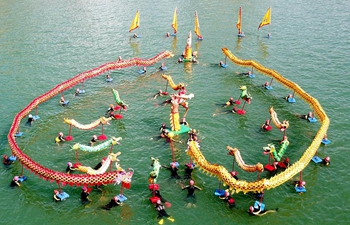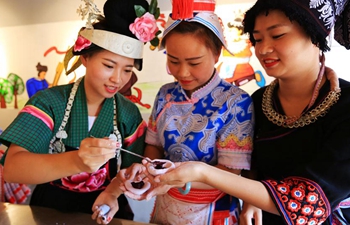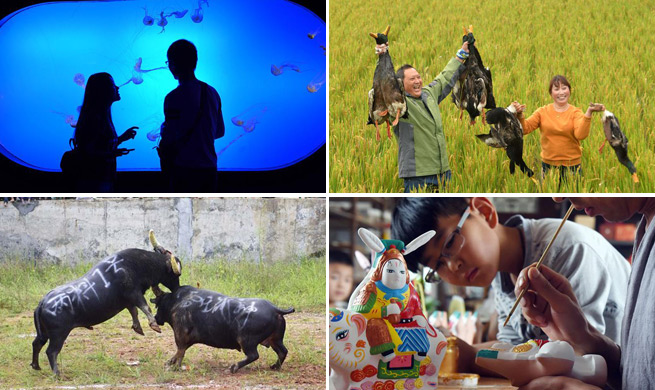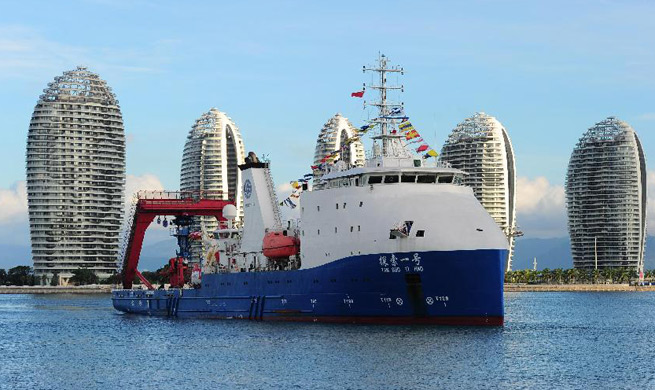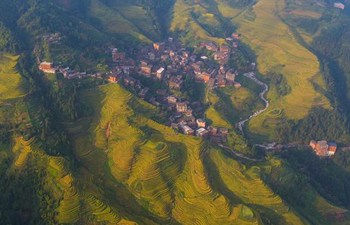by Alexia Vlachou
ATHENS, Oct. 3 (Xinhua) -- Pregnant refugees in Greece have limited access to health care, medical NGO Doctors of the World Greece said here Tuesday when presenting the findings of a new research.
A total of 14,000 refugee women participated in the research as part of the two-year Mother & Child project carried out by Doctors of the World Greece.
The findings were presented during an international conference in Athens for Safe Motherhood Week 2017 from Oct. 2 to 9.
According to the research, less than 47 percent of refugee women had access to reproductive health care prior to the intervention by the Doctors of the World.
"We have to look more closely at these women. Pregnant women face an emergency, difficult conditions, don't always have access to the health system, and they need more care for themselves and their babies before and after the birth," Nikitas Kanakis, president of Doctors of the World Greece told Xinhua.
In addition, in 72 percent of the health problems refugees faced they received either inadequate or no medical care.
Since its launch in 2016, the Mother & Child program has provided medical services to 31,000 vulnerable and pregnant women and pediatric services to 5,000 infants and newborns.
"It is very crucial that these refugees who arrive in Greece have a special treatment for mother and children. It is very important for the children who are born in Greece to be born in good conditions and women are in good conditions as well," Maria Stratigaki, Athens deputy mayor for social solidarity, welfare and equality told Xinhua.
A total of 60,000 refugees have been stranded in Greece since the closure of the borders along the Balkan route in 2016. It is estimated that 25,000 to 30,000 refugees will not be relocated to other European countries and will remain in Greece.
Securing equal access to primary health care and maternal health for pregnant women is the "duty of the state and the society," Kanakis stressed.
Early and ongoing maternal care is essential to reducing death and long-term health problems for mother and child.
Most women refugees are not aware of their rights and cannot understand how the health care system works due to different cultures, languages, and beliefs, the survey showed.
But in some cases, there is history of previous abuse before, during their journey, or at the camp.
"These women come from a more autarchic background. They do not express themselves, they face domestic violence, or they are not able to cope with everyday needs. So, we need to work more closely on this," Kanakis noted.
In line with Kanakis, Stratigaki said that refugee women need more attention due to gender-based violence.
"We do our best for these women who live in conditions of inequality. We treat the traumas of gender-based violence that they have experienced either in the place they come from, during their journey to come to Greece, and in the camps," Stratigaki said.
From these findings, Doctors of the World developed refugee health policy recommendations to aid European governments and EU institutions to meet the health needs for refugees being relocated to countries across Europe.
"We try to create a policy that we will give to the state by the end of the project next year," Kanakis said.
Whether the Greek and other European governments will take it into consideration or not, it remains to be seen.




